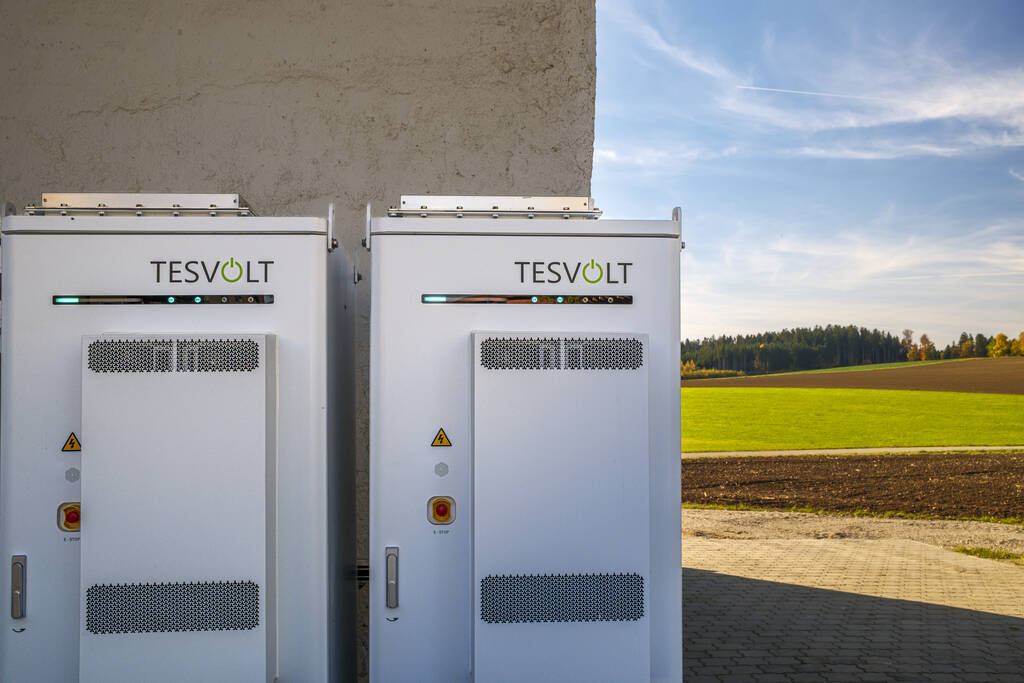Until now, operators of smaller battery storage facilities were excluded from energy trading: it was not economically viable for traders to trade their comparatively small storage capacities on the electricity exchange. Only large storage facilities of around 5 MWh or more are of interest to energy traders.
‘When TESVOLT launched a new business model that virtually bundles many commercial storage systems into one large storage system, we wanted to take a closer look,’ reports Johannes Mitterreiter. "My department head for PV and storage, Stefan Balk, pushed the issue forward and made sure that we were able to participate in the storage field tests as a specialist partner. We were supplied with the appropriate new TESVOLT FORTON storage systems and were able to try out for ourselves how well energy trading works with them."
The electrical installation company from Engelsberg in Chiemgau has a 400 kW grid connection point, to which photovoltaic systems with a total output of 250 kWp were already connected. The company owner wanted to utilise the remaining capacity of the grid connection and connect four battery storage systems with a total output of 184 kW to the grid. The problem: this meant that the total output of the solar systems and battery storage units exceeded the 400 kW capacity of the grid connection by 34 kW. Although electricity storage systems and photovoltaic systems usually operate at different times: when solar systems feed their energy into the grid, the price of electricity on the exchange often plummets, and battery storage systems only sell their energy to the grid when their electricity can be sold at the highest possible price. At times when electricity storage systems and PV systems nevertheless want to use the grid connection point simultaneously for energy feed-in or storage, the electricity flows must be regulated intelligently and as profitably as possible for the owner.
Ultimately, the main challenge was to convince the local energy supplier that the grid connection would not be overloaded at any time.


 German
German Dutch
Dutch


 by
by